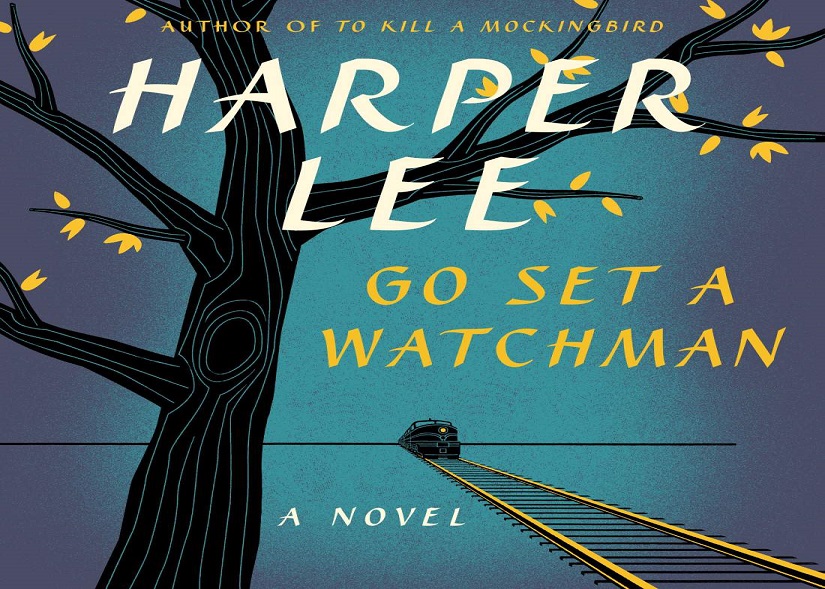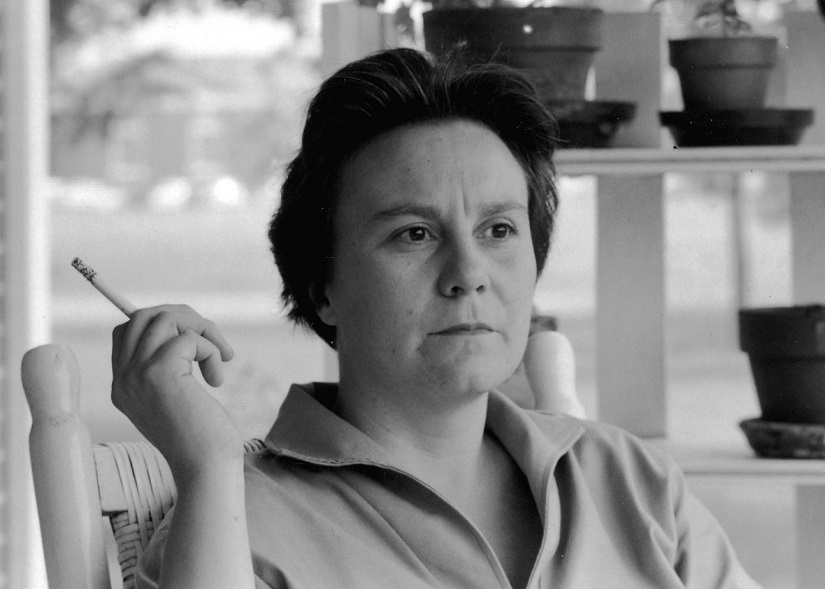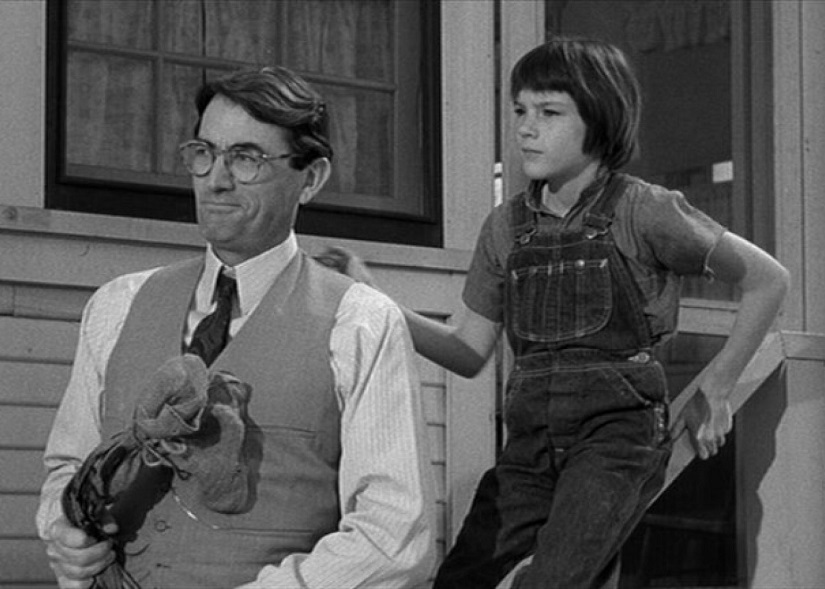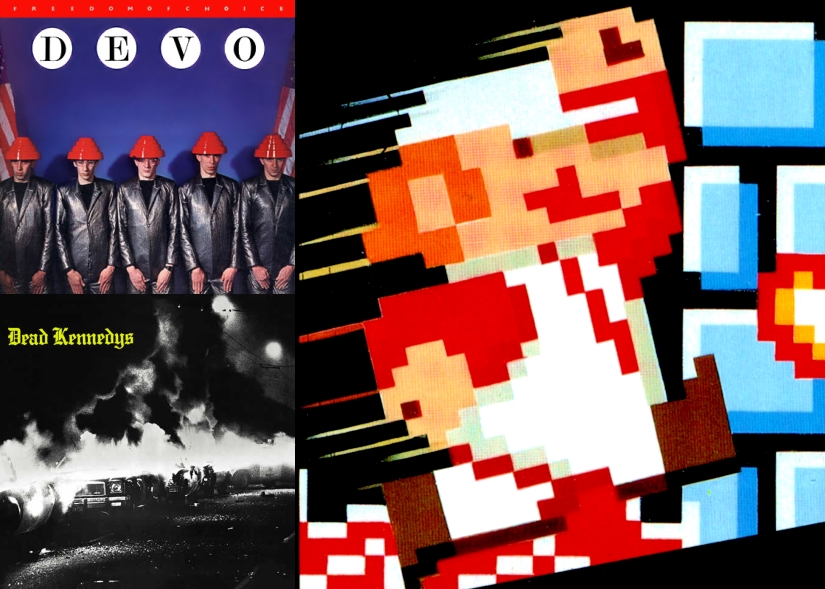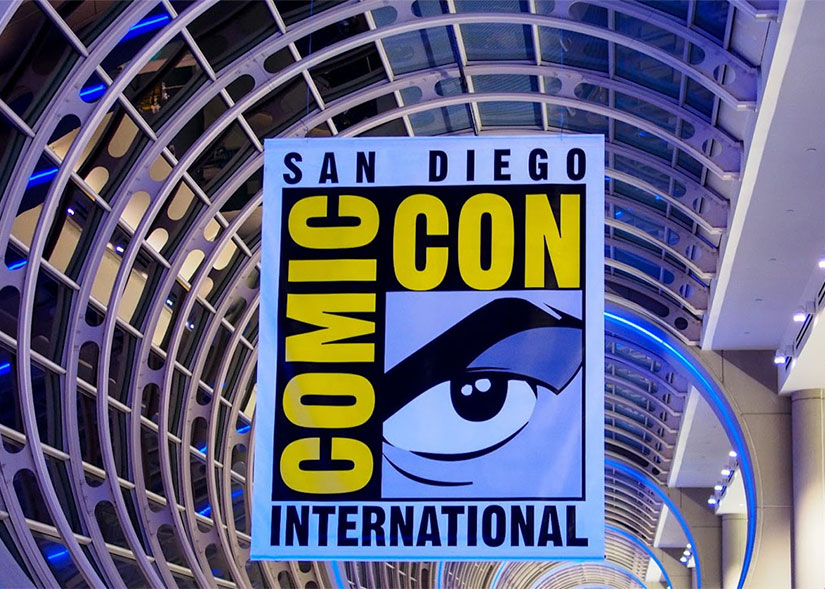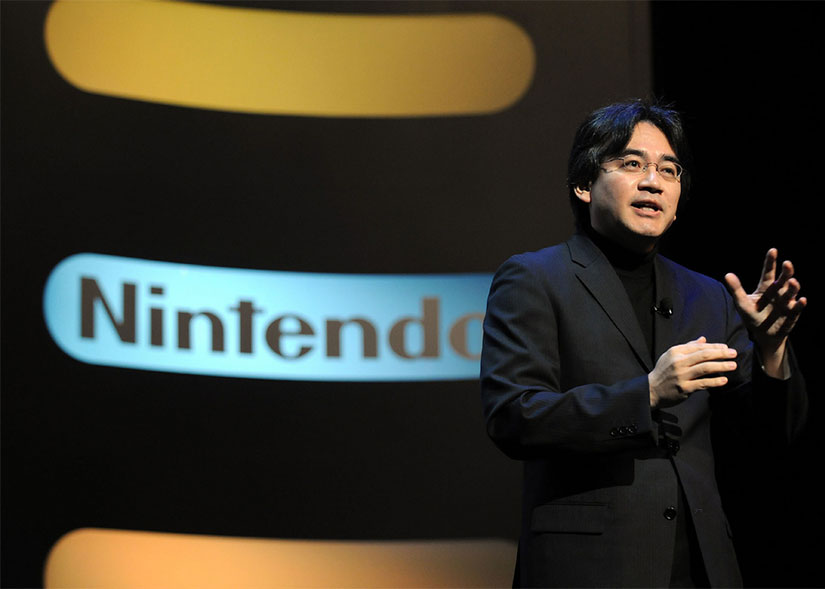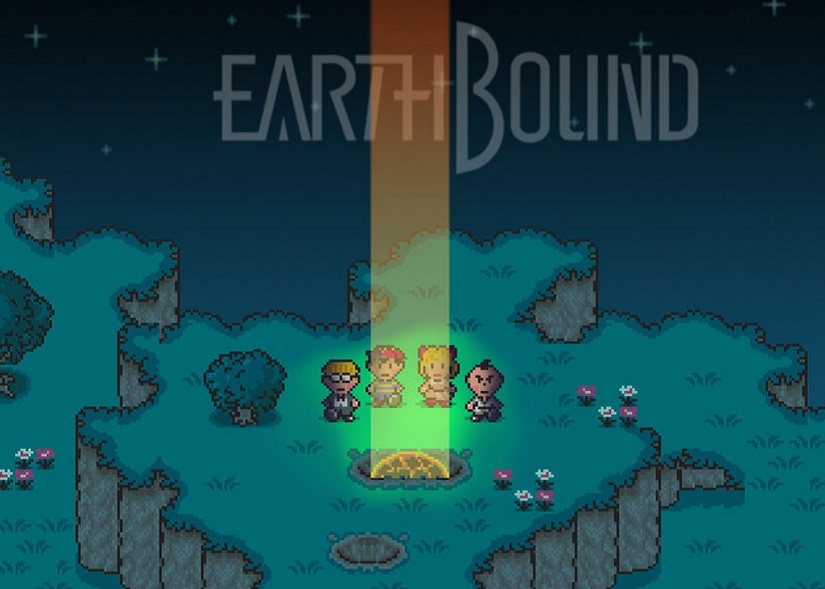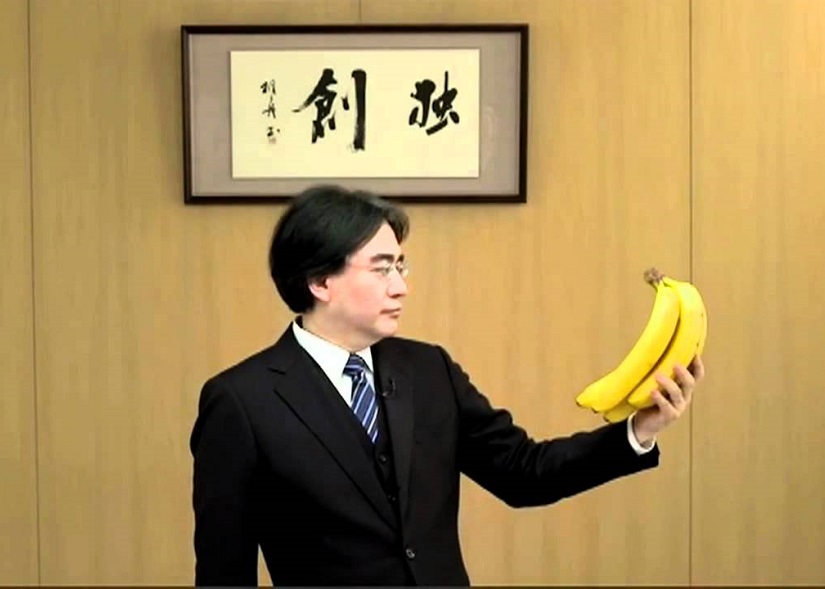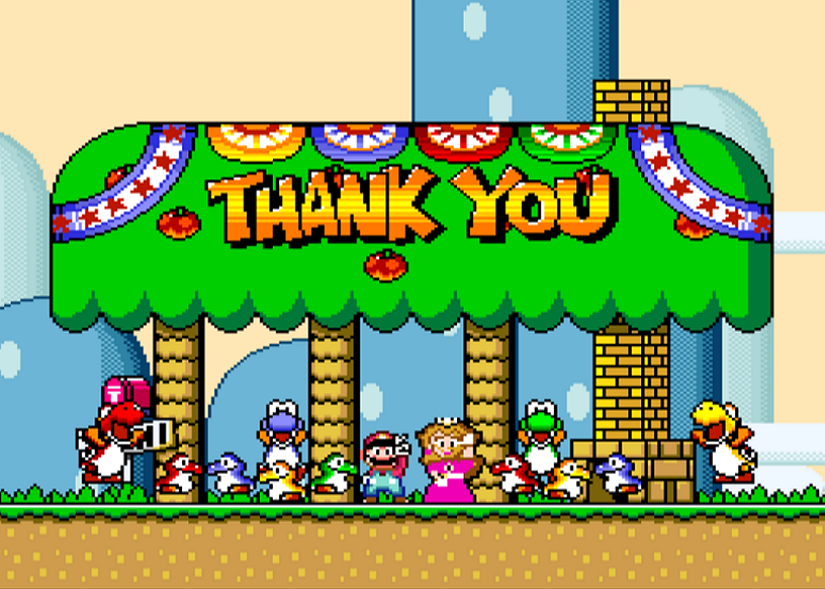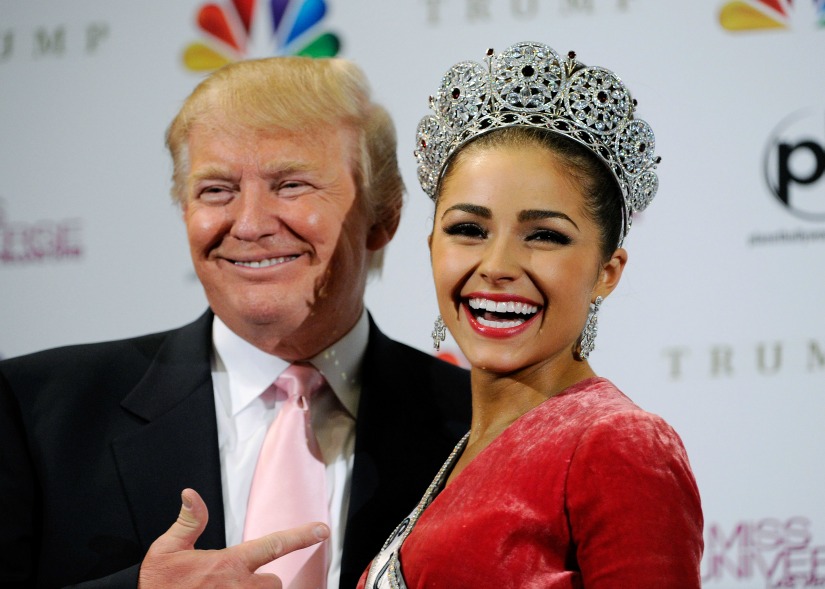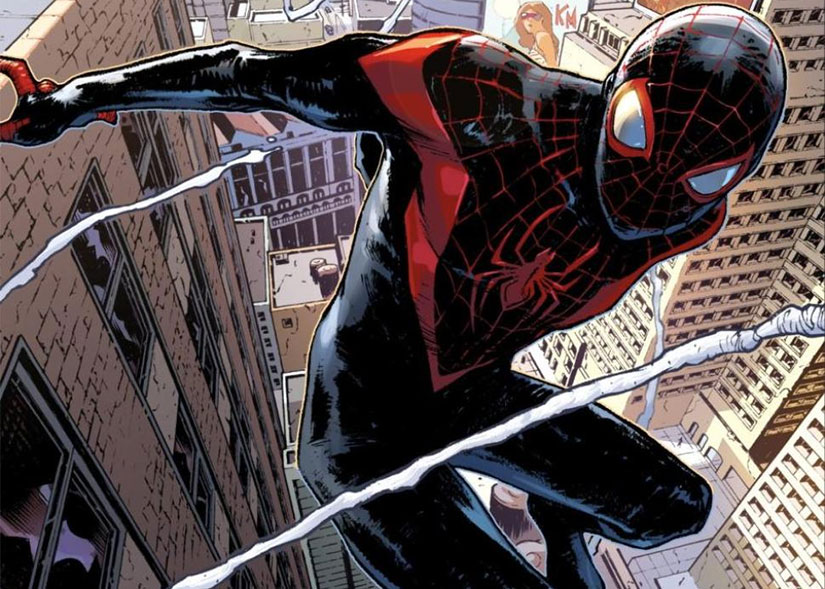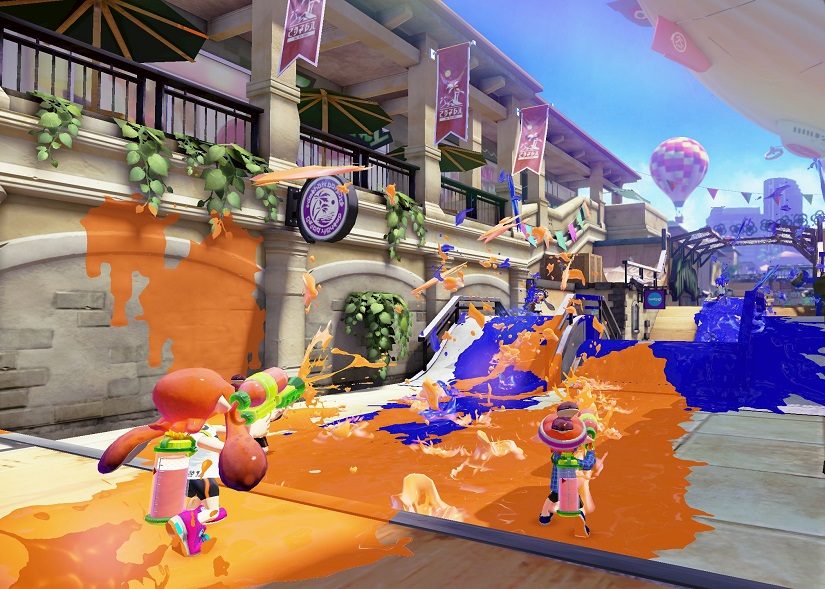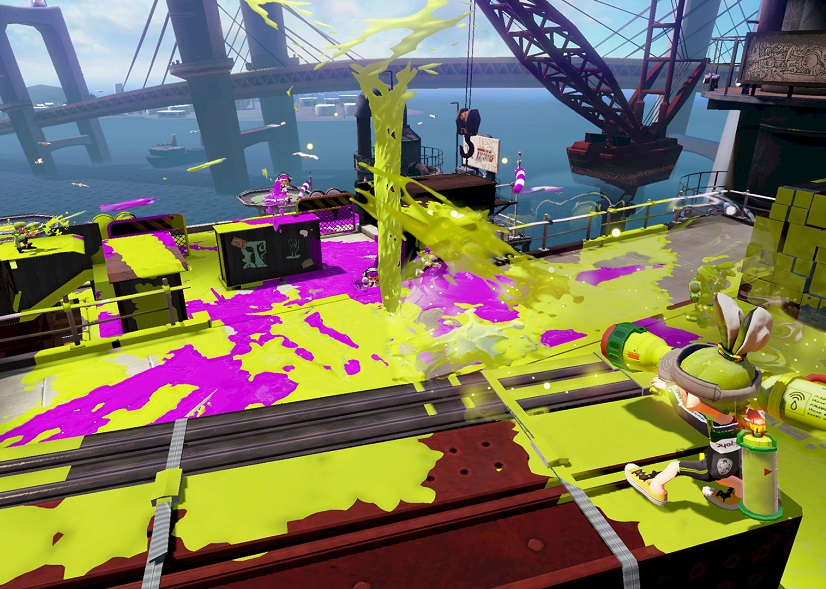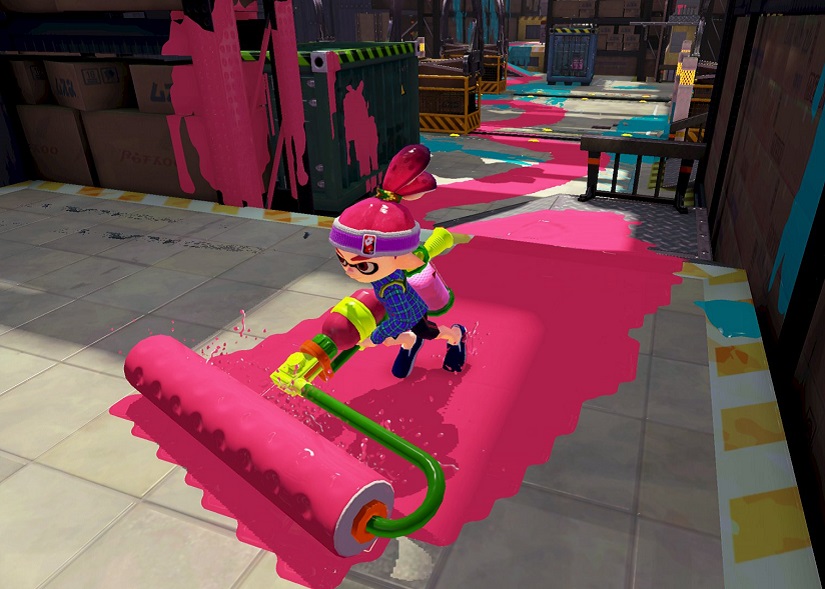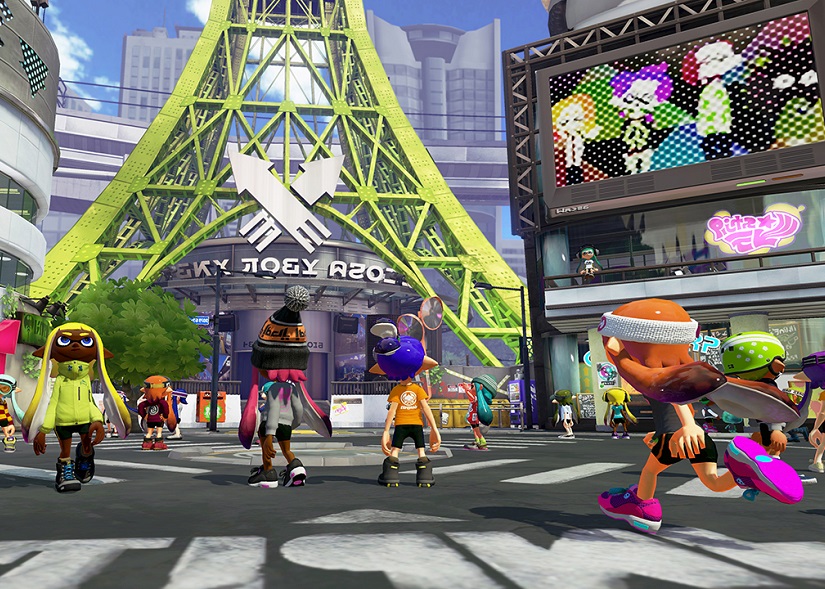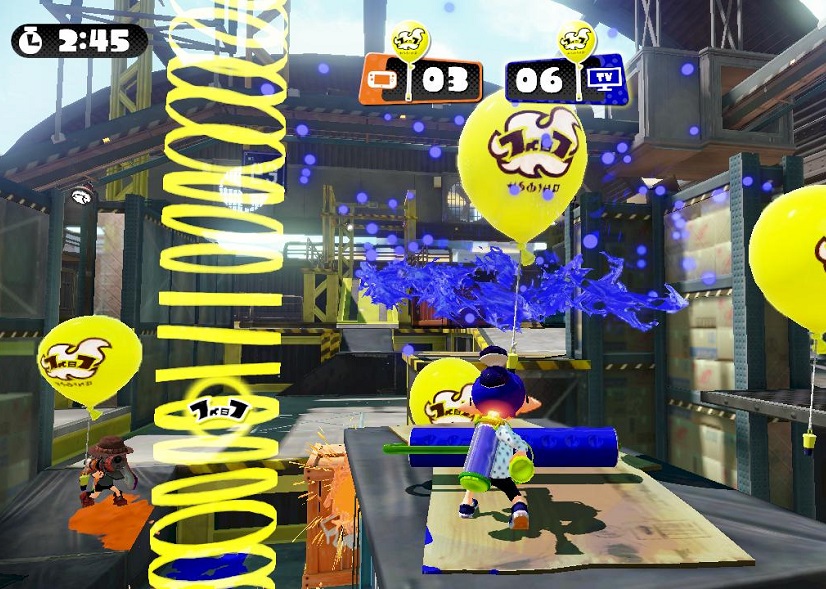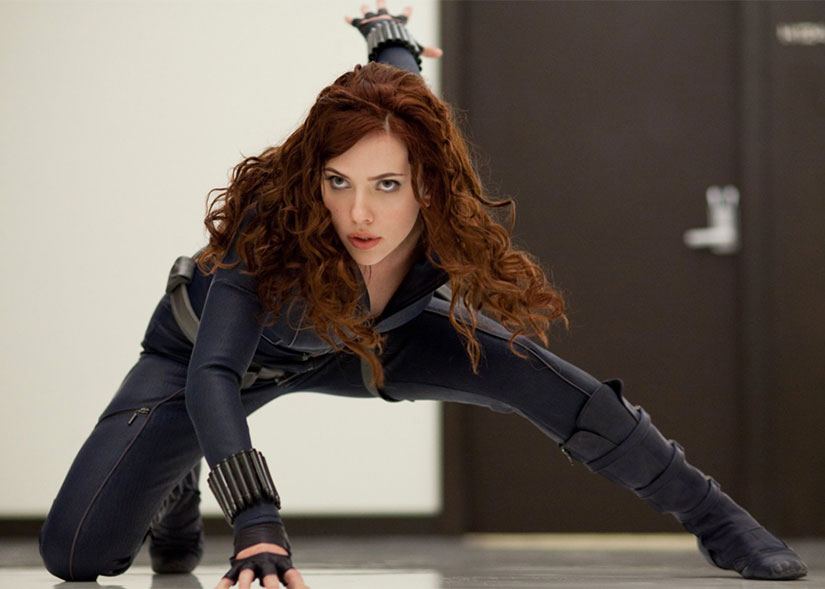[Review] Go Set A Watchman
The circumstances surrounding the publication of Go Set A Watchman have been sufficiently well documented and debated that there seems little need to retread that ground here. Whether or not you choose to buy the book as a result of its questionable journey into print is one best left to your own conscience rather than a thousand words of a reviewer wrestling with his. The core matter to be dealt with is simply whether or not it is a worthwhile book. My answer would be an emphatic yes.
It must be noted that it is also a tremendously challenging book, a long way from the moral simplicity of To Kill A Mockingbird, the novel it was later redrafted into but to which it now serves as a pseudo-sequel. Much has already been written about Atticus Finch being revealed as holding pro-segregationist views - with, as might have been expected, plenty of people popping out of the internet woodwork to let everyone know it was obvious to them all along, even if they didn't say anything at the time - and Scout, here known by her birth name of Jean Louise, struggling to deal with the idea of her father not being the paragon of virtue she had long looked up to.
That's not the challenging part, however. What is fascinating about Watchman is that, despite being written and set in the 1950s, its concerns are startlingly contemporary. Its themes cover the expected ground related to family, racism and the humanisation of childhood idols, but also moves through the politics of identity, class and privilege. Not all of these are given the same weight, understandably, but that they are tackled at all strips the book of Mockingbird's fairytale quality, which allowed various problematic elements to go ignored or dismissed as simply representative of their time, and roots it in something much closer to realism. Considering that such issues continue to disunite the States today, the change is an essential one for times where a reassertion of homespun values simply won't do.
It's difficult to say whether the book can be enjoyed on its own terms because it exists, both textually and thematically, in such stark opposition to Mockingbird. Whomever advised author Harper Lee to rewrite Watchman into that novel was a genius for recognising the elements which bore all the hallmarks of a best-seller, but in light of this new publication, should also be admonished for allowing its complexities to be so diminished. Where Mockingbird took a very clear and firm moral stance, Watchman takes the altogether more difficult but honest route of reminding us that it is dogmatic zealotry on both sides, and the dehumanisation and comforting vilification of those who disagree with one's views, which is often the real obstruction to progress.
Make no mistake, Atticus' views are, by today's standards and, I suspect, possibly even to some people in Lee's time, stomach-churning. A lengthy monologue in which he lays out his thoughts on how '[...] the Negroes down here are still in their childhood as a people' is brutal, and Jean Louise's anger, in light of her own, more modern views, becomes not only understandable but energizing. As thrilling as it is to revel in her takedown of her father's prejudices, however, Lee's point is not affirm one side over the other, but to emphasize the importance of communication and understanding even between those whose politics could not be more diametrically opposed. As long as people only seek to validate their own opinions, Lee suggests, and surround themselves with those who agree with them while demonising all who don't, the only result can be the ugly stalemate of each side sniping impotently at each other from afar.
Atticus' thoughts on segregation may be difficult to read, but Jean Louise's conversations with both him and the other people of Maycomb reveal her initial generalisations to be no less simplistic. While her views on integration are more acceptable to most modern audiences, she in her own way is no less patronising and close-minded than she accuses others of being. For all her noise and fury at Atticus, she has little interest in the thoughts of those affected by segregation - the ageing Calpurnia is the only black person given much of a voice, even then confined to a solitary scene where her function is to console the anguished white girl - and, until the very end, outright refuses to listen to anyone who challenges the fixed worldview through which she defines herself.
Having spent the years since Mockingbird living in New York, the pouty resilience of the young Scout has mutated into the self-righteousness of a prototypical East Coast lefty. One gets the feeling that had the older Jean Louise been present at the Tom Robinson trial, which is given a brief mention and notable retcon, she'd have been quick to label her father a misogynistic rape apologist. That she later gets called a bigot (a turnip-sized one at that) by her conservative uncle is bound to ruffle a few feathers in view of her stance against segregationism, but rationally the essential point is hard to argue with. The wisdom of Watchman is not coming down on one side or the other, but as a reminder that rapprochment and honest conversation are the only ways out of America's historical holding pattern of racism and hate.
As for the rest of the book, the prose is adequate but largely uninspired, not above occasionally slipping into facepalm-worthy clichés - particularly a real stinker of a chapter closing line about colour-blindness - and lacking the rhythm and small linguistic graces which grow out of considered editing. The plot is barebones at best, conducted largely through a series of didactic conversations which only spring to life once the novel's themes take shape in later chapters. Brief flashbacks to Jean Louise's childhood are oases of humour and sweetness, but whilst on their own terms show how the innocently naive Scout laid the roots for the ideologue of later life, readers familiar with Mockingbird will find little new contained within.
The book's politics are so dominant, however, that how one interprets them will likely be the decisive factor in whether Watchman is deemed a worthy successor, of sorts, to its esteemed forebear. Already you only need put the title into Google to see how quick commentators have been to twist Lee's message of unity into one affirming their own views and prejudices - precisely what the text clearly warns against. That complexity and empathy is what makes it an important and essential second entry in Harper Lee's literary canon. Mockingbird may be the more refined and comforting read, but for all Watchman's many rough edges, it does what any good sequel should by expanding the perspective of the original into something richer, braver and wiser, dare I so blaspheme by even suggesting, better. The true mark of its success is perhaps that, even with the contentious nature of its publication hanging over it, it nevertheless proves itself worthy of celebration.
New 33 1/3 Books on Devo, Dead Kennedys, and Super Mario Bros Are Criticism Done Right
There's an old, dismissive joke about music criticism: "Writing about music is like dancing about architecture--it's a really stupid thing to want to do."
That's funny, sure, but good music critics can dance like motherfuckers. Dancing is fun, it's stimulating, it's potentially generative. When people can dance as well as they do in the 33 1/3 series, that's something that should be celebrated. (Here I am, dancing about dancing.)
The 33 1/3 series began publishing pocket-sized books of music criticism in 2003, each focused on a single album, each a sustained work of long-form criticism. The best entries in the series are exceptional culture writing. Some of the standouts include Celine Dion's Let's Talk About Love: A Journey to the End of Taste by Carl Wilson, James Brown's Live at the Apollo by Douglas Wolk, David Bowie's Low by Hugo Wilcken, Public Enemy's It Takes a Nation of Millions to Hold Us Back by Christopher R. Weingarten, and Television's Marquee Moon by Bryan Waterman. (Waiting on my shelf to be read: Big Star's Radio City by Bruce Eaton and a novella about Black Sabbath's Master of Reality by Mountain Goats frontman John Darnielle.)
[youtube id="j_QLzthSkfM"]
Three of the recent 33 1/3 books focus on seminal works of the early '80s: Devo’s Freedom of Choice by Evie Nagy, Dead Kennedys’ Fresh Fruit for Rotting Vegetables by Michael Stewart Foley, and, the first entry on videogame music in the series, Koji Kondo’s Super Mario Bros. by Andrew Schartmann. Each of the books are fine additions to 33 1/3. In other words, they dance like motherfuckers.
Form and content are the most basic aspects of aesthetic criticism, and while that's part of the discussion in each of these three new books, the authors also find ways of exploring the time and the place that gave birth to each album. If it's questions of form and content that determine the relative success of individual works of art, it's questions of time and place that help fashion the form and the content, and it's the intersection between the elements of form, content, time, and place that help determine the enduring legacy of the art.
Let's give each of these new 33 1/3 books a quick look. For more information on the books and the series, visit the 33 1/3 site.
Highlights from San Diego Comic Con 2015
I've been to dozens of expos, conventions, festivals, and the like over the years, but my favorite type of events have always been comic book conventions. From the dozens of vendors selling unique items and hard-to-find collectibles to the amazingly talented cosplayers to meeting your favorite artists and writers, I've always enjoyed my time at the various comic book conventions I've attended. In recent years, they've become larger pop culture events in which film studios screen their latest films and trailers, cast members come out for intimate Q&As, and con attendees get their exclusive sneak peeks at everything the world will be talking about later that week.
San Diego Comic Con has grown to become the comic book convention to go to in the United States, and while I wasn't in attendance this past weekend (SDCC '17, my eyes are on you), I've compiled some of the weekend's best highlights. Whether you're a dedicated comic book fan waiting to hear what Marvel and DC have up their sleeves, a film fan excited for the first glimpses at 2016's top superhero films, or just really enjoy good cosplay, we have you covered! Also, check out the Suicide Squad footage if you haven't yet!
Remembering Nintendo's Satoru Iwata, The CEO Who Made The World Smile
There can be few higher aspirations in life than bringing joy and happiness into the lives of others. Former Nintendo President, Satoru Iwata, who died yesterday aged 55, achieved this for millions of people around the globe. When we think of CEOs these days, we imagine soulless corporate suits crushing those lower down the ladder in pursuit of profit. Iwata could not have been further from that image. At a keynote speech in 2005, he famously stated that: "On my business card, I am a corporate president. In my mind, I am a game developer. But in my heart, I am a gamer."
Having stated his career as something of a prodigal talent in programming, working on such titles as Balloon Fight, Earthbound and various Kirby games, Iwata ascended the ranks at Nintendo to become the company's first President not descended from the Yamauchi bloodline. Where his predecessor, Hiroshi Yamauchi, was every bit the stoic, fiendishly brilliant businessman, Iwata transformed Nintendo into a company with a welcoming face that suited their line of games and characters which had been a staple of so many fondly-remembered childhoods.
Iwata never lost his passion for the video games medium and his achievements are spoke of in hushed tones throughout the industry. He coded the NES classic Earthbound all on his own. He debugged the entirety of Super Smash Bros Melee in three weeks to ensure the game hit its scheduled release date. He ported the battle system from the original Pokémon Game Boy games to Pokémon Stadium in a week without any help from design documentation. When Game Freak were struggling to contain the world they had created for Pokémon Gold and Silver into a single Game Boy cartridge, Iwata developed a compression technique so efficient that the developers were able to fit the entirety of the previous games' world in there as well. If Shigeru Miyamoto was the genius behind many of the company's most enduring mascots, Iwata was the technical master whose brilliance may have operated behind the curtain, but was no less impressive or important.
It was during his tenure as Nintendo President that Iwata truly began leaving an imprint on gamers' hearts and minds. He oversaw the creation of two of the world's most successful and innovative consoles, the Wii and the DS handheld. Both were dismissed at launch by competitors, yet went on to achieve groundbreaking global sales. For all they lacked in cutting edge hardware, both offered a diversity and whimsy in their games library that could not be found anywhere else. It was during this time that Iwata also began working to soften the company's image, offering an unprecedented level of openness and accessibility to its fans. In his Nintendo Direct online presentations, which he used periodically to announce updates on new games, he showed off a famously self-deprecating, meme-conscious sense of humour as the loveable half of a double act with Nintendo Of America's burly COO, Reggie Fils-Aimé. In his Iwata Asks interviews, he gave unprecedented insights into the thought processes of some of the world's most important game developers.
When the Wii's successor, the Wii U, struggled out of the gate, Iwata showed that his kindness was not limited to his public persona. Facing severe pressure from shareholders to lay off employees and embrace the cynical practices of free-to-play gaming which had become so prevalent and lucrative elsewhere, Iwata resolutely stuck to his guns, firmly believing in the importance of respecting and trusting the company's core fanbase. In 2014, he elected to cut his salary in half in order to avoid having to cut employee numbers as a consequence of poor financial results. This act of astonishing humility and, yes, understanding stood in stark contrast to the actions of other multinational CEOs at the time, who spent much of the financial crisis protecting themselves and their salaries at all costs.
Whether remembered making his signature 'direct' hand gesture, holding up a bunch of bananas, or in the puppet form so immediately embraced in last E3's Digital Presentation, Iwata personified all the qualities which made Nintendo so special to so many people around the world, never straying from his core belief that video games are meant to be fun for everyone. He oversaw one of the most creatively and financially successful periods in the company's history. Even with the recent downturn in fortunes with the struggles of the Wii U, he was in the process of modernising the company with moves into mobile gaming and toys-to-life, on course to right the ship without compromising its all-important central values. Most importantly, he was a man of singular nobility, talent and generosity, who was always loved and respected even by those who sometimes did not agree with his decisions. The outpouring of grief following his passing is testament to how deeply he was loved by those touched by his work and who felt welcome into the accepting, open-hearted Nintendo community he was instrumental in creating. Though his death leaves us with tears in our eyes, his legacy left smiles in our hearts.
Thank you, Iwata-san. You really were a Super Player.
R.I.P. Satoru Iwata, 1959 - 2015
Why Univision Dropping Miss USA is a Big Deal
Through the years, I've learned to dismiss older folks when they make racist comments, thinking they were just a product of their time. I figured if I'd wait it out long enough, all those comments would go away. Unfortunately, that's no longer the case as those negative voices are getting much louder. Last week, Donald Trump announced his bid as candidate for the 2016 presidential election. Normally I'd just ignore him like I do every angry white man, but Trump just started spouting the worst kinds of things.
Along with his stances on gay marriage, health care, and ISIS, he had this to say about immigration laws:
The US has become a dumping ground for everybody else's problems...When Mexico sends its people, they’re not sending their best. They’re sending people that have lots of problems. And they’re bringing those problems with us. They’re bringing drugs, they’re bringing crime, they’re rapists, and some, I assume, are good people...It's coming from all over South and Latin America and it's coming, probably, probably from the Middle East.
[youtube id="bMSBmjeDTFA"]
Univision (one of the largest Spanish language television networks), rightfully angry at his comments, refused to air the upcoming Spanish translated broadcast of the Miss USA Pageant and will no longer have anything to do with Miss Universe, which Trump partly owns:
Today the entertainment division of Univision Communications Inc. announced that it is ending the Company’s business relationship with the Miss Universe Organization, which is part-owned by Donald J. Trump, based on his recent, insulting remarks about Mexican immigrants. At Univision we see first-hand the work ethic, love for family, strong religious values and the important role Mexican immigrants and Mexican-Americans have had and will continue to have in building the future of our country. We will not be airing the Miss USA pageant on July 12th or working on any other projects tied to the Trump Organization.
While Trump blames the Mexican government (thinking they put some kind of pressure on Univision to break their $10 million contract due to trade deals or something), he doesn't seem to grasp how big of a move this is for Univision, and how much more it's going to hurt him in the long run. You see, as much as he wants to build a wall to keep Mexican immigrants out, traditional Mexican families make up a huge chunk of the television watching audience. As big networks are finding out, immigrants are one of the few demographics left that subscribe to event television like big pageant shows (basically stuff that you have to watch live to get the full experience instead of on Hulu later). That's why you've seen a greater amount of Latino representation lately (and why pandering programs like Cristela and Devious Maids exist, or in Cristela's case, existed) as those Mexican families increasingly use television to connect with the American lifestyle.
This is going to deal major damage to Trump's television shows, and it's only the start of the landslide. Roselyn Sanchez (who was brought on to co-host the Spanish simulcast of the Miss USA pageant and serendipitously stars on Devious Maids), has left the broadcast, NBC (the network which hosts the brunt of his programming like his numerous Apprentice shows) has separated itself from his comments, ending their business relationship with him earlier today.
As Trump vies for the presidency, he claims he cares less about his precious money. Hopefully he understands how much of that he's going to lose here. As the Spanish speaking audience increases, so does their buying power. Eventually that buying power is going to ring louder than any thoughtless rant from a slowly aging man. Good luck getting that presidential nomination, Trump.
Miles Morales Replaces Peter Parker as Spider-Man
Yesterday, news broke that Miles Morales will replace Peter Parker as Marvel Comics' official Spider-Man following the end of their current Secret Wars event in the adjective-less Spider-Man written by Miles co-creators Brian Michael Bendis and Sara Pichelli. This comes four years after Morales' debut alongside vocal communities calling for Miles to become the de facto Spider-Man across the board. However, this doesn't mean Peter will disappear entirely. While he'll be hanging up the webs for the foreseeable future, he'll still be a supporting character in the books, serving a mentor role to young Miles.
The importance of Miles, a bi-racial character with an African-American father and Puerto Rican mother, being elevated as THE Spider-Man in the Marvel Comics comes after a purported leak over the weekend that detailed film depictions of Peter Parker must maintain the status quo of him being a heterosexual caucasian male. However, while the Marvel Cinematic Universe and Marvel Comics have shared elements in their respective media, the Marvel Comics world has grown more and more diverse, as I detailed last summer following Sam Wilson being named Captain America. Bendis himself has praised the importance of having a person of color take the mantle of Marvel's most famous and popular character, telling the New York Daily News:
Our message has to be it’s not Spider-Man with an asterisk [...] It’s the real Spider-Man for kids of color, for adults of color and everybody else.
Before long, the long-standing image of superheroes as white, strong-jawed males will be replaced by people of all shapes, sizes, and colors, and Marvel's move to cement Miles as THE Spider-Man is just the next step towards accomplishing this goal. The decision also increases the chances of Miles Morales appearing in future Spider-Man films (assumedly not until after the next wave of Spider-Man films run their course).
[Review] Splatoon
The common refrain of Nintendo only making games for children may irritate fans no end, but as a statement, it is hard to argue with its accuracy. The suggestion, of course, is that no-one above a certain age would want to play their games, the patently ludicrous delusion of those still clinging to the juvenile approximation of violence with adulthood. Nintendo's games are delightful no matter how old you are, and the reason is because few other companies in the business of creating entertainment are as effortlessly capable of producing experiences which instantly recall the intense, anarchic joys of childhood.
More specifically, Nintendo remembers that such pleasures never had anything to do with the saccharine ideal often portrayed by the media through bland snapshots of toddlers laughing with their parents or playing calmy in an immaculately organised nursery. The joys of childhood were in the misbehaving, the chaos and wanton disobedience of making a mess and breaking rules you didn't even know existed. This rule-breaking has been key to Nintendo's design philosophy ever since players were encouraged to discover a warp zone in the original Mario Bros by running along the level roof. The company may have become increasingly conservative in recent years, pumping out annual Mario and Zelda titles to bolster its struggling hardware, but that core design doctrine, that mischief is always more fun than obedience, has remained, even if not quite as pronounced as it used to be.
That's where Splatoon comes in.
[youtube id="XHlgKMUePck"]
Splatoon
Developer: Nintendo
Console: Wii U
Release Date: May 29th, 2015
Shooters and territorial control games are often cited as two of the most 'hardcore' (cough) genres in gaming, demanding pinpoint precision and intricate mastery of an array of complex systems and controls. With Splatoon, Nintendo takes both genres and inverts them via a simple but inspired twist, whereby the goal is not to conquer the enemy but the arena, performed with a compact number of immediately accessible options with infinite variation. In Titanfall, EA attempted to make shooting games accessible to beginners by offering low-skilled AI opponents as cannon fodder to artificially inflate scores. Such a clunky and patronising solution ignored the real sources of the problem: unneccessarily complex controls, confusing gameplay mechanics, and intimidating levels of aggression, to name a few.
Nintendo solves it by turning the genres' most basic tenents on their heads. In Splatoon, the wisest tactical move is often to avoid the most heavily populated areas in favour of seeking out and reclaiming overlooked map real estate. As long as a player is able to navigate and hold the button to fire the ink whose coverage claims territory for their team and increases their personal score, they are able to make a positive contribution to the effort even if they don't see an opponent the entire match (as unlikely as that admittedly is). With a tap of the gamepad's touchscreen, you can at any point choose to jump to another location on the map provided an ally is nearby, providing an easy way out of sticky situations. Gunning down enemies with the game's impressively varied and well-balanced arsenal is not without benefits, though the most important is tactical, forcing a member of the four-strong opposing team out of action for a few seconds and giving your team a momentary but essential advantage during which game-winning pushes into enemy territory can be made.
Achieving significant ground coverage also aids navigation, with your player able to transform into a squid and swim at high speed through ink of his or her own team's colour, even up and over certain walls. Doing so robs you of all offensive capability, but adds a stealth element - using a well-placed ink trail to sneak up behind an enemy and splat them is a thrill discovered early and which never becomes any less gratifying - and a further tactical element to the gameplay, whereby choosing the moment to risk a charge down a precarious ink trail through enemy lines, using speed rather than power to survive, can lead to a potentially enormous advantage, especially with teammates able to immediately jump to your side should you make it.
For all that killing, or splatting, is de-emphasized, your choice of weapon can make a huge difference to your role in the game. Rapid-fire weapons offer little range or accuracy, but balance ground coverage with reasonable offensive power when pushing towards choke points. Rollers (literally giant paint rollers) can lay down a wide, continuous path of ink, essential for quick navigation and aggressive land-grabbing, but are immensely vulnerable to attack from above or at a distance. Chargers, the game's sniper rifles, are specialised high-power weapons with the greatest focus on taking out opponents, but can put together huge scores with thoughtful use. The many variations on these weapons offers a smorgasbord of in-between options for those whose skillset doesn't comfortably fit into one specific category. Overly efficient Aerospray aside, they all offset each other nicely.
In addition to your primary weapon are subs and specials. Subs are the equivalent of Call Of Duty's equipment, offering both explosive and tactical options. Specials are the game's version of killstreaks, unlocked once you have covered or reclaimed a certain amount of territory. These create some of the game's few balancing issues. While each has its purpose and can be an invaluable asset in the right hands, some subs and specials are noticeably more formidable than others: the Kraken, for instance, transforms the player into an invincible sea monster who can cut an ink trail through enemy territory and destroy all in its path. The Killer Wail sonic blast, with its cover-permeating range and wide radius, becomes insanely powerful in narrower maps.
None is game-breaking by any stretch, but Nintendo's solution, locking weapon sets to prevent players chopping and changing to the most devastating combinations, only serves to undermine the solid balance of the primary weapons by making certain sets inviable should the supporting options not be strong enough to compete. That lack of customisation is symbolic of what holds Splatoon back from making the most of the phenomenal gameplay experience at its core. Nintendo's refusal to give players the full range of options that should be a genre standard feels very much like unneccesary caution from a company with a young audience venturing on its own for the first time into a genre traditionally reserved for more advanced players. Having to quit out of online lobbies to adjust your load-out is a ridiculous frustration, especially for such a tactical game, when most online shooters allow you to not only change in-between matches, but often during them as well.
The number of clothing options available from the Inkopolis hub in which to kit out your avatars is also undermined by the associated perks being entirely randomised bar one. This is, again, presumably to prevent players stacking themselves with a small number of powerful options, but a more balanced set would prevent that more naturally. It instead encourages players to choose aesthetic options they may not like in order to take advantage of the boosts they provide. It ceases to be about players expressing themselves and more a slightly grating push to engage in a system of cynical capitalism encouraging results and function over creativity and self-representation. Achieving a high enough level allows you to re-roll your perks, but it's a costly option that continues to put players at the mercy of a random draw.
Online multiplayer is the game's overwhelming focus and runs smoothly despite suffering the occasional connection failure which also blighted Mario Kart in its post-launch months. Fair warning, there have also been reports of a small number of players struggling to connect at all. Offline, the single player mode is short and sweet, barely five hours in length and, outside the endearingly barmy boss fights, feels more like an extended training mode than campaign in and of itself. Nevertheless, it offers impressive variety in visuals and design, combining the look and obstacle course structure of Super Mario Galaxy 2 with the spraying mechanic from Super Mario Sunshine. There's little incentive to replay levels once they've been completed, but collecting the secret scrolls hidden in each reveals an enjoyably silly and surprisingly detailed lore underpinning the game's squids vs octopodes conceit.
It's a shame there isn't an arena mode to battle AI opponents in the multiplayer maps, and the local multiplayer option, while frantic enough on the smaller maps, is so stripped down (involving popping balloons rather than territory coverage, for whatever reason) that its appeal is likely to be decidedly short-term. Restricting player numbers to two is another annoyance, especially when trawling the bigger maps becomes a drag which could have been at least partially alleviated by allowing four players to enter the fray in 2v2 competition. The local multiplayer control options are also incomprehensively narrow and counter-intuitive: the player using the gamepad can only play on the tiny gamepad screen, giving the player using a Pro or Classic controller the entire TV to themselves. The lack of a splitscreen option reeks of Nintendo trying to force usage of the gamepad's features in a way that also permeates the rest of the game. Outside local multiplayer, the gamepad is the only available control option, despite none of touchscreen features requiring functions that the Wii U's Call Of Duty titles haven't already handled quite ably for non gamepad-users by allowing players to toggle transparent on-screen maps. The inability to use the Wii remote/nunchuck combo is especially jarring given what a natural fit pointer aiming would seem to be for Splatoon's rapid-fire gameplay.
If the absence of control choices and customisation is an annoying but hardly overwhelming issue, the dearth of options even in the game's online multiplayer is far more difficult to overlook. While the limited single player and local multiplayer are forgiveable and the novelty of the bold gameplay is enough to keep things fresh (to use the game's own 90s-inflected lingo) for hour after hour of play, launching with only five maps and a single mode - with one more of each unlocking tonight - in the headline online multiplayer is entirely unacceptable. That custom matches with friends reportedly won't be unlocked until August only makes the situation all the more ridiculous.
The staggered roll-out of maps and modes in free DLC can be interpreted as Nintendo giving players time to get used to the specific demands of the game, or less optimistically as a cynical bid to make players hold onto it and reduce the second-hand market. With upcoming multiplayer maps already existing in the single player mode - levels 08 and 20, if you're after a sneak-peek - it taints what is otherwise one of Nintendo's most exciting and innovative releases in years. While the game's budget price in Europe makes it worth the plunge regardless of those early shortfalls, recommending it at the full $60 price to American buyers is considerably more difficult, at least until the full complement of 14 maps has been released in a few months' time - at which point, the game might well be cheaper anyway. Splatoon is a game that demonstrates all the subversive, groundbreaking glee that marks out the very greatest of Nintendo's work. Now they just need to finish it.
Damsel in Distress: The Lack of Female Superheroes in Hollywood
In the '90s, my parents encouraged my tomboy ways and let me play with the boys toys, as if back then letting girls play with boys toys was taboo. They’re just toys, right? Almost 20 years later, I went to Target to grab some superhero merchandise for the opening night of The Avengers: Age of Ultron. To my dismay, all of the merch was located in the boy's toy section; including the female superhero items, which wasn't more than a pen-sized action figure or two. As I picked up the last Captain America mask, I passed the bright pink aisles where all of the "female-friendly" toys were. There wasn’t a superhero Barbie, plush toy or action figure in sight. What gives, Hollywood?
After seeing the film, I walked out disappointed. Scarlett Johansson played Black Widow in The Avengers: Age of Ultron, a former USSR assassin trained from a young age who uses her skills for her own gain and later on for the good of mankind. As a big Marvel fan, I was excited to see the return of the strong, female superhero in a Hollywood blockbuster (besides the X-Men). Unfortunately, her backstory was watered down as her relationship with Bruce Banner (e.g. Hulk) in the film grew into a sappy "woe is me" superhero complex as she revealed she was unable to bear children. As if in the year 2015 this was the number one, sure-fire way to humanize a former Soviet-bred killing machine to American women. Why does her mystery have to be washed over by pointless sentiments of humanity? They’re superhuman. Then, in the end, it’s Banner who ends up leaving her behind, despite their plans to run away together. Whether or not this was an accuracy issue from the comics to the big screen, why couldn’t Black Widow be the one to leave? Left at the altar, even in fantasy, the woman is still portrayed to be more vulnerable than her male counterpart.
I’ll admit, there’s the occasional female powerhouse (e.g. Gamora in Guardians of the Galaxy, the ladies of the X-Men and Catwoman in The Dark Knight Rises), but the damsel in distress routine is getting blase to say the least. These are the women who know they’re needed for a team to function and most importantly, vital in saving the planet if not the universe. In X-Men: Days of Future Past, without the women of the X-Men, the people of Earth would live forever in chains and the mutants of Earth left to be brutally murdered by robots. Without Gamora in Guardians of the Galaxy, Star-Lord wouldn’t have been able to save the planet. In the comic book world, there are plenty of women superheroes, but until those books come to life in a way that empowers us mere mortals on Earth, it’s a man’s universe; real or fantasy.
When comics started in the '20s, it was a man’s world. While the comic book universe is booming with female leaders, it's Hollywood who pass over these women like they're minor characters. But, in 2015, something has to change. The question is: what is Hollywood going to do about it?

